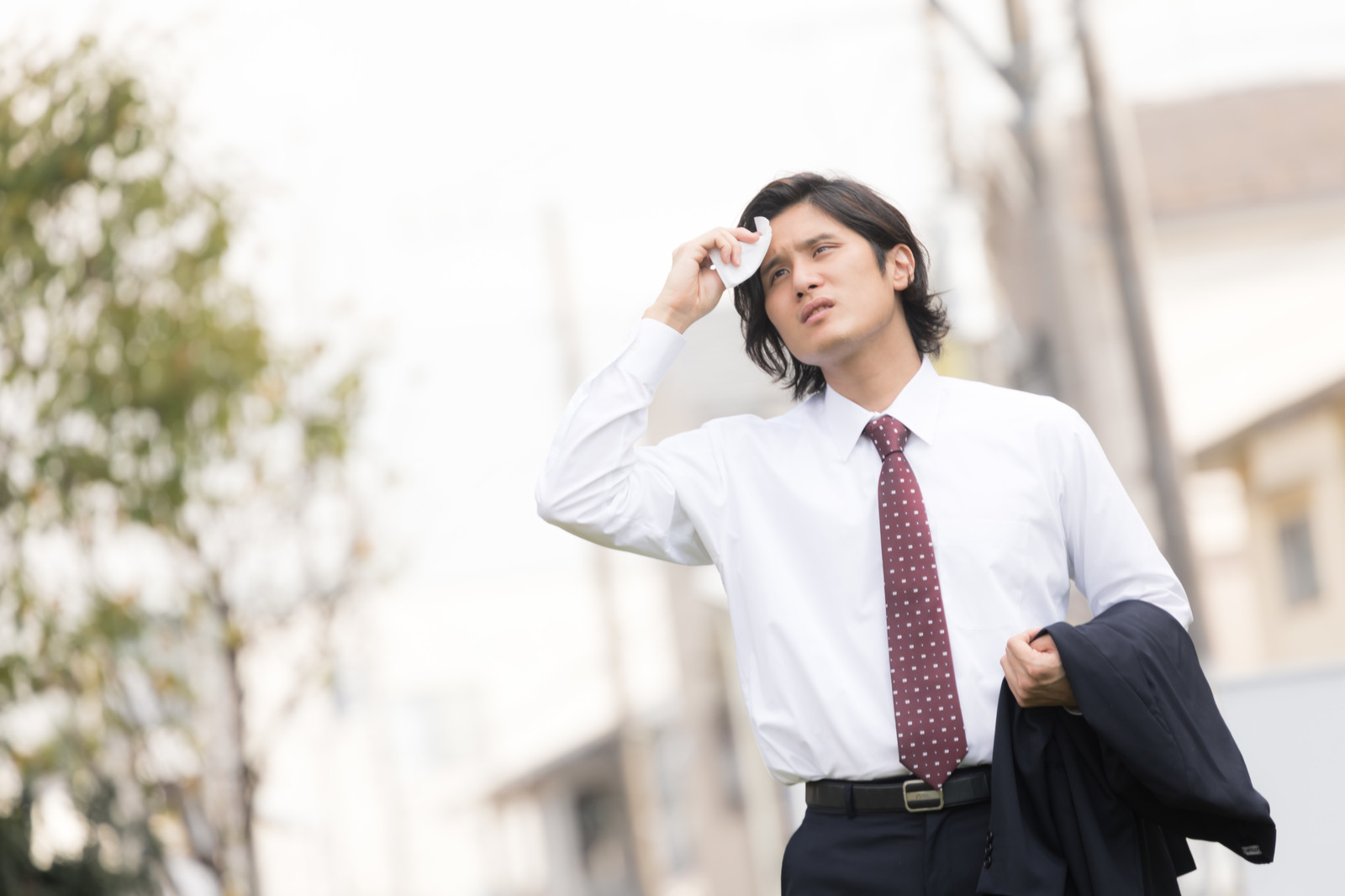
Times are changing, and Japan’s younger generation now favors practicality over formality when it comes to work fashion.
In Japan, joining the workforce as a salaryman or office lady means donning business suits of very basic styles and colors. As crazy as it may sound, deviation from fashion norms established by countless generations of office workers wearing black and white can actually reduce your chances of landing jobs.
But even for a country that holds tradition in high regard, the winds of change have begun to blow, as shown by a comprehensive analysis of the Family Income and Expenditure Survey conducted by Japan’s Ministry of Internal Affairs and Communications. In 1991, the average Japanese household spent 25,000 yen (US$220) a year on business suits, which amounted to 0.5 percent of the national average annual income of 4.6 million yen.
▼ That expenditure rapidly dropped to a mere 6,959 yen per year in 2016,
more than a three-fold decrease.
This may have been attributed to a number of factors, including the proliferation of IT and venture companies where workers are often allowed to operate in casual work clothes. The government’s Cool Biz initiative to help reduce electricity consumption might have also played a huge role in the decline of suits, encouraging workers to ditch standard business suits in favor of short-sleeved shirts without jackets during the sweltering summer months.
Nevertheless, some Japanese companies still maintain strict dress code guidelines to this day even in the unbearable heat. Workers forced to wear suits during hot summers could often be drenched in sweat by they walked just from the train station to the office, which meant more trips to the dry cleaners.
▼ Some were driven to the point where they would transfer in a heartbeat
to a company that allowed casual wear.
What’s more, investing 40,000 yen or more on a set of suits for work might not be everyone’s cup of tea, not to mention the additional financial burden for fresh university graduates who have to repay student loans.
The decline in sales has caused stocks to plummet for business suit companies like Aoyama Trading and Aoki Holdings, two of the biggest brand names in the office attire industry. Even new classy fabrics and styles seem to have minimal effect on the market slump.
While it’s a stretch to say that we’ll be witnessing the death of business suits in Japan soon, the fact that more workers desire comfortable wear suggests that practicality has become a higher concern for them. Besides, no one wants to look at sweaty man-nipples through stark white shirts.
Source: Niconico News via My Game News Flash
Top image: Pakutaso
Insert images: Pakutaso (1, 2)



 Sayonara, suits! One of Japan’s biggest companies ditches suit-and-tie dress code
Sayonara, suits! One of Japan’s biggest companies ditches suit-and-tie dress code Japanese clothing chain offers an answer to job-hunting suit conundrum
Japanese clothing chain offers an answer to job-hunting suit conundrum Japanese business wear brand creates helpful graph to tell you what to wear at work
Japanese business wear brand creates helpful graph to tell you what to wear at work No more neckties! Japanese prefecture abolishes necktie dress code for government employees
No more neckties! Japanese prefecture abolishes necktie dress code for government employees Meet the “world’s best dressed farmer,” Japan’s Kiyoto Saito 【Video】
Meet the “world’s best dressed farmer,” Japan’s Kiyoto Saito 【Video】 Japan’s new difficult-to-drink-from beer glass protects your liver, but it’s a brutal experience
Japan’s new difficult-to-drink-from beer glass protects your liver, but it’s a brutal experience Hello, cosmetics! Clinique teams up with Hello Kitty this summer for first-time collaboration
Hello, cosmetics! Clinique teams up with Hello Kitty this summer for first-time collaboration How to order snacks on a Shinkansen bullet train in Japan
How to order snacks on a Shinkansen bullet train in Japan Demon Slayer: Kimetsu no Yaiba gets new roller coaster attractions and food at Universal Studios Japan
Demon Slayer: Kimetsu no Yaiba gets new roller coaster attractions and food at Universal Studios Japan New samurai glasses are Japan’s latest weird must-have souvenir
New samurai glasses are Japan’s latest weird must-have souvenir Burger King Japan suddenly adds Dr. Pepper and Dr. Pepper floats to its menu nationwide
Burger King Japan suddenly adds Dr. Pepper and Dr. Pepper floats to its menu nationwide New Nintendo Lego kit is a beautiful piece of moving pixel art of Mario and Yoshi【Photos】
New Nintendo Lego kit is a beautiful piece of moving pixel art of Mario and Yoshi【Photos】 What do you eat when you catch a cold? We asked 11 of our Japanese reporters
What do you eat when you catch a cold? We asked 11 of our Japanese reporters High-fashion Totoro cuddle purse is like an elegant stroll in the forest【Photos】
High-fashion Totoro cuddle purse is like an elegant stroll in the forest【Photos】 Why Japanese doesn’t need swear words
Why Japanese doesn’t need swear words Nintendo history you can feel – Super NES, N64, and GameCube controllers become capsule toys
Nintendo history you can feel – Super NES, N64, and GameCube controllers become capsule toys “The most Delicious Cup Noodle in history” – Japan’s French Cup Noodle wins our heart【Taste test】
“The most Delicious Cup Noodle in history” – Japan’s French Cup Noodle wins our heart【Taste test】 Starbucks releases a cute Frappuccino and Unicorn Cake…but not in Japan
Starbucks releases a cute Frappuccino and Unicorn Cake…but not in Japan Kyoto Tower mascot termination reveals dark side behind cute Japanese characters
Kyoto Tower mascot termination reveals dark side behind cute Japanese characters McDonald’s Japan’s Soft Twist Tower: A phantom ice cream only sold at select branches
McDonald’s Japan’s Soft Twist Tower: A phantom ice cream only sold at select branches Yabai Ramen: What makes this Japanese ramen so dangerous?
Yabai Ramen: What makes this Japanese ramen so dangerous? Finally! Nintendo Japan expands Switch 8-bit controller sales to everybody, Online member or not
Finally! Nintendo Japan expands Switch 8-bit controller sales to everybody, Online member or not Japanese government wants to build luxury resorts in all national parks for foreign tourists
Japanese government wants to build luxury resorts in all national parks for foreign tourists To combat declining birth rate, Japan to begin offering “Breeding Visas” to foreigners
To combat declining birth rate, Japan to begin offering “Breeding Visas” to foreigners 10 things you should buy at 7-Eleven in Japan
10 things you should buy at 7-Eleven in Japan Studio Ghibli releases anime heroine cosplay dresses that are super comfy to wear
Studio Ghibli releases anime heroine cosplay dresses that are super comfy to wear Woman charged for driving suitcase without a license in Osaka
Woman charged for driving suitcase without a license in Osaka Studio Ghibli unveils My Neighbour Totoro miniature house model
Studio Ghibli unveils My Neighbour Totoro miniature house model Kyoto experiencing problems with foreign tourists not paying for bus fares, but not on purpose
Kyoto experiencing problems with foreign tourists not paying for bus fares, but not on purpose Fighting mild hunger with a Japanese soda that turns into jelly in the stomach【Taste test】
Fighting mild hunger with a Japanese soda that turns into jelly in the stomach【Taste test】 Studio Ghibli’s Howl’s Moving Castle tapestry unveiled in Japan for first time
Studio Ghibli’s Howl’s Moving Castle tapestry unveiled in Japan for first time McDonald’s new Happy Meals offer up cute and practical Sanrio lifestyle goods
McDonald’s new Happy Meals offer up cute and practical Sanrio lifestyle goods Sales of Japan’s most convenient train ticket/shopping payment cards suspended indefinitely
Sales of Japan’s most convenient train ticket/shopping payment cards suspended indefinitely Sold-out Studio Ghibli desktop humidifiers are back so Totoro can help you through the dry season
Sold-out Studio Ghibli desktop humidifiers are back so Totoro can help you through the dry season Japanese government to make first change to romanization spelling rules since the 1950s
Japanese government to make first change to romanization spelling rules since the 1950s Foreigner’s request for help in Tokyo makes us sad for the state of society
Foreigner’s request for help in Tokyo makes us sad for the state of society Ghibli founders Toshio Suzuki and Hayao Miyazaki contribute to Japanese whisky Totoro label design
Ghibli founders Toshio Suzuki and Hayao Miyazaki contribute to Japanese whisky Totoro label design Doraemon found buried at sea as scene from 1993 anime becomes real life【Photos】
Doraemon found buried at sea as scene from 1993 anime becomes real life【Photos】 Tokyo’s most famous Starbucks is closed
Tokyo’s most famous Starbucks is closed Princesses, fruits, and blacksmiths: Study reveals the 30 most unusual family names in Japan
Princesses, fruits, and blacksmiths: Study reveals the 30 most unusual family names in Japan Slip into a new, more comfortable normal with Aoki Holdings’ Pajama Suit
Slip into a new, more comfortable normal with Aoki Holdings’ Pajama Suit Japanese politicians want workers across country to have option for three-day weekends every week
Japanese politicians want workers across country to have option for three-day weekends every week Government survey finds teleworking at least once per week raises Japanese worker happiness level
Government survey finds teleworking at least once per week raises Japanese worker happiness level What happens when our reporters show up to work dressed like their fathers?
What happens when our reporters show up to work dressed like their fathers? Japan’s ‘agri-tech’ farming revolution
Japan’s ‘agri-tech’ farming revolution Japan’s new Pajama Suit is the perfect all-day, all-situations outfit for our current lifestyle
Japan’s new Pajama Suit is the perfect all-day, all-situations outfit for our current lifestyle Japanese fashion brand Heather releases line for people 5 feet and under
Japanese fashion brand Heather releases line for people 5 feet and under Poll in Japan shows zero percent of students are aiming to work in goods distribution
Poll in Japan shows zero percent of students are aiming to work in goods distribution “Common habits of Japan’s low earners”: What this survey tells us, and what it doesn’t
“Common habits of Japan’s low earners”: What this survey tells us, and what it doesn’t Man-nipples become tools of “sexual harassment” during summer, complain Japanese women
Man-nipples become tools of “sexual harassment” during summer, complain Japanese women South Korean shipyard workers wear robo-suits for super-strength
South Korean shipyard workers wear robo-suits for super-strength Japan’s “workstyle reforms” are actually making managers’ jobs a lot harder【Survey】
Japan’s “workstyle reforms” are actually making managers’ jobs a lot harder【Survey】 The top 10 traits of “domestic” women in Japan, according to Japanese men
The top 10 traits of “domestic” women in Japan, according to Japanese men Majority of surveyed Japanese workers have dated a coworker, over 20 percent their boss or senpai
Majority of surveyed Japanese workers have dated a coworker, over 20 percent their boss or senpai Japanese military to receive funding for powered suits, everyone wonders what took so long
Japanese military to receive funding for powered suits, everyone wonders what took so long Sports-playing Japanese junior high students at an all-time low, survey finds
Sports-playing Japanese junior high students at an all-time low, survey finds
Leave a Reply